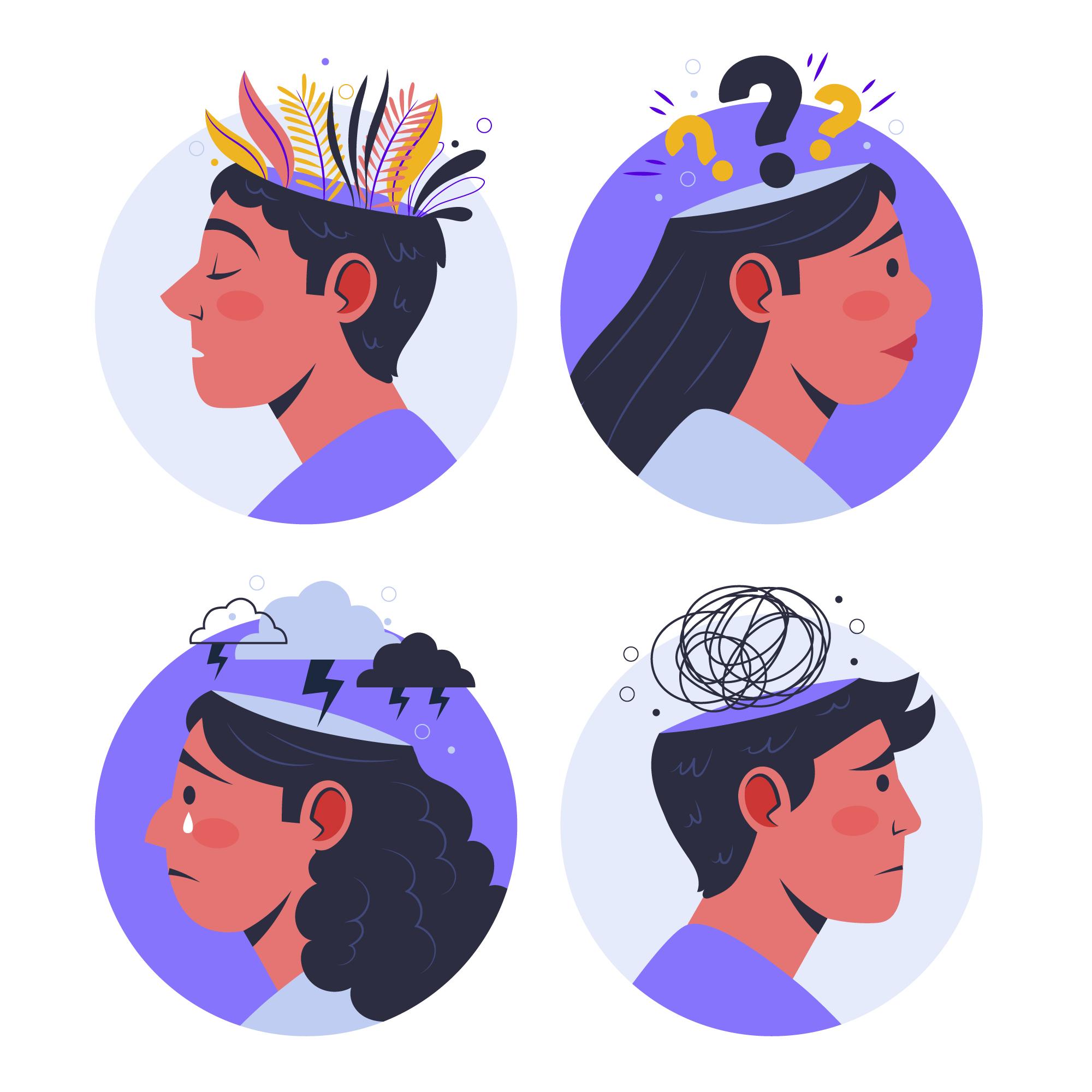Dissociation
Overview
Dissociation is a psychological condition characterized by a disconnection between thoughts, identity, consciousness, and memory. It is often a response to trauma and stress. While globally recognized, the awareness and understanding of dissociation in India remain limited. Cultural perceptions, stigma, and lack of specialized mental health resources contribute to the underdiagnoses and misinterpretation of dissociative disorders.
Key Facts
- Studies indicate that 1-2% of the global population experiences severe dissociative disorders, but the numbers in India remain unclear due to underreporting.
- A study conducted in India found that 12-15% of psychiatric patients exhibit dissociative symptoms, with women being more affected.
- Dissociative Identity Disorder (DID) and Depersonalization-Derealization Disorder (DPDR) are among the most commonly diagnosed dissociative conditions in India.
- Childhood trauma, emotional neglect, and abuse are major contributing factors to dissociative disorders in the Indian population.
- Many individuals exhibiting dissociative symptoms in India seek help from spiritual healers rather than mental health professionals due to societal beliefs.
Symptoms and Patterns
Dissociation manifests in various ways, including:
- Memory Gaps: Inability to recall important personal information.
- Depersonalization: Feeling detached from one’s own body.
- Derealization: Experiencing the world as unreal or distorted.
- Identity Confusion/Alteration: Presence of multiple identities (DID) or shifting personality traits.
- Emotional Numbness: Feeling disconnected from emotions and surroundings.
In India, dissociative fugue (sudden, unplanned travel with amnesia) and possession states (believing to be controlled by supernatural entities) are reported more frequently, influenced by cultural and religious beliefs.
Risk and Protective Factors
Risk Factors:
- Childhood Trauma: Physical, emotional, and sexual abuse significantly increase the risk.
- Chronic Stress: Economic hardships, family conflicts, and social stigma.
- Gender Dynamics: Women are more likely to experience dissociation due to societal pressures and trauma exposure.
- Cultural Beliefs: Supernatural interpretations delay psychological intervention.
- Lack of Mental Health Awareness: Limited recognition of dissociation as a medical condition.
Protective Factors:
- Strong Social Support: Family and community support help in coping with stress.
- Mental Health Awareness Programs: Education and early intervention reduce stigma.
- Cultural Sensitivity in Therapy: Integrating cultural understanding improves treatment adherence.
Treatment and Care
Effective management of dissociation in India involves:
- Psychotherapy: Cognitive Behavioural Therapy (CBT) and Dialectical Behaviour Therapy (DBT) are effective in addressing dissociative symptoms.
- Medication: Antidepressants and anti-anxiety medications are sometimes prescribed to manage associated conditions like depression and PTSD.
- Community Awareness: Public education on dissociation helps in reducing stigma and promoting early intervention.
- Crisis Intervention Centres: Establishing more mental health centers in rural and urban areas to provide accessible care.
Psychological and Psychosocial Interventions
- Trauma-Focused Therapy: Helps individuals process past trauma and build resilience.
- Mindfulness and Grounding Techniques: Practices like yoga and meditation, widely accepted in Indian culture, can aid in managing symptoms.
- Support Groups: Peer support networks encourage shared experiences and healing.
- Family Therapy: Engaging family members in therapy improves patient outcomes and reduces stigma.
Conclusion
Dissociation remains an underdiagnosed and misunderstood condition in India due to cultural beliefs, lack of awareness, and stigma. Strengthening mental health infrastructure, increasing awareness, and integrating culturally sensitive interventions are crucial for addressing dissociation in the Indian population. Future research should focus on collecting more data to understand the prevalence and impact of dissociative disorders in India.


